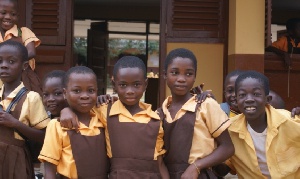The Education Sector Working Group (ESWG) in the Northern Region has called on stakeholders in the educational sector to review and change what they term as “outdated” standards of teaching and learning.
The change they say will ensure non-usage of old trends of teaching and learning and allow the adoption of changing trends to build and create a better standard for assessing students.
A member of the Pan African Organisation for Research, Dr. Ndonwie Peter, opined that the standards of assessing students in Ghana have outlived its usefulness thus calling for a more robust formula for learning.
He was speaking at a meeting with development partners in education held in Tamale to discuss education trends in the Northern Region.
“Ghana’s standard for assessing students is outdated therefore the need for it to be reviewed. The outdated standard is actually killing the talent of children. “Take children with dyslexia, how can these children write the same exams with other children and be assessed on the same level and when these children do not perform well, they are not able to continue their education while perhaps if these had been allowed to go ahead they could have become big entrepreneurs in Ghana,” Dr Ndonwie Peter said.
Chairman for ESWG, Seidu Issah Abah, who also doubles as the Head Inspectorate at the Northern Regional Education Office, defined quality education as not just filling up the classroom with pupils but ensuring the provision of teaching and learning materials as well as all other issues to achieve a holistic education sector.
“When we say quality education, all the other issues can be subsumed under it. That provides infrastructure to areas where classrooms are overcrowded, provide adequate furniture in the classroom, provide teaching and learning material.”
The Education Sector Working Group (ESWG) was formed in the year 2014 by the former Northern Region Minister, Alhaji Mohammed Muniru Limuna, to cut down the rate of junior and senior high school dropouts due to inability to pass exams at the various stages. It is also to strengthen the checks and balances in the educational sector and to complement the work of the Ghana Education Service in the Northern Region.
General News of Sunday, 19 June 2016
Source: 3news.com

















